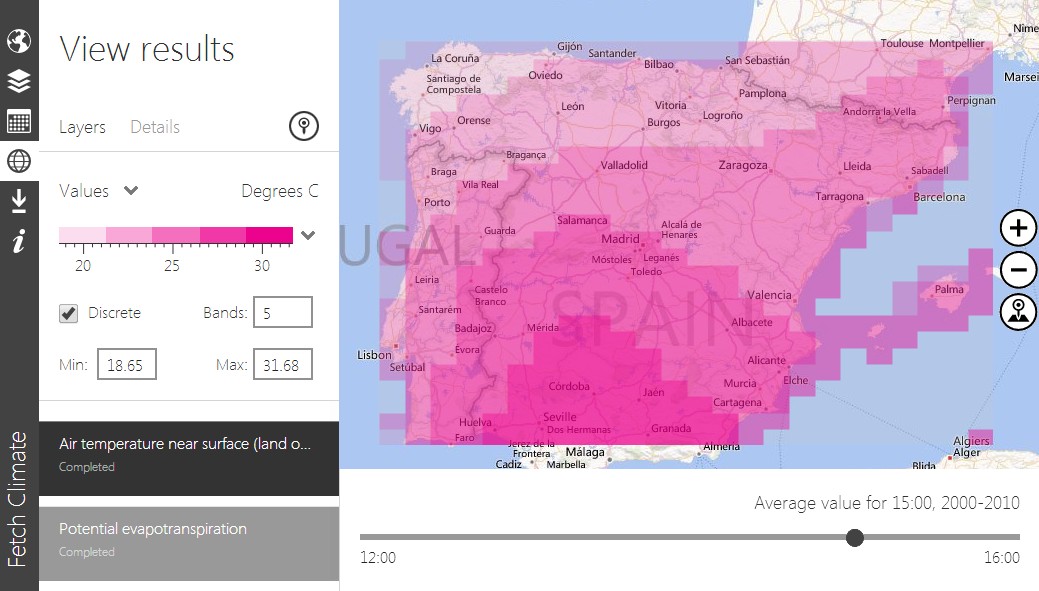| Climate Data From the Cloud |
| Written by Sue Gee | |||
| Tuesday, 22 April 2014 | |||
|
FetchClimate, a new Azure service developed by Microsoft Research, makes finding a displaying data from thousands of available datasets as easy as search for a hotel or a visitor attraction. From the point of view of the end user, FetchClimate adds a set of tools to Bing Maps. You simply draw a box around the geographic area you’re interested in, select the environmental information you want from a menu of info layers, and specify the time periods you are interested in. For example we looked at afternoon temperatures averaged over 2000 to 2010.
(click to enlarge)
For those concerned with future climate, FetchClimate includes forecast data from climate simulation experiments providing information about the predicted temperature or precipitation up to the year 2049. As well as interacting with the FetchClimate service via the web explorer it can be accessed via an API, from inside a program written in any of several languages, including .NET, R, and Python and Microsoft Research is also releasing an open-sourced deployment package for setting up customized FetchClimate-powered services. The Microsoft Research Connections Blog suggests: The deployment package will be attractive to individuals, research teams, national laboratories, and international collaborations who are used to dealing with geographical data and are keen to share it with colleagues and the outside world in a more dynamic way. To encourage the uptake of this package Microsoft Research is sponsoring a Climate Data Initiative that offers grants of Microsoft Azure resources to help early adopters set up their own FetchClimate-powered services. It will be selecting 40 awardees from proposal submitted by June 15, 2014 as part of the Microsoft Azure for Research Award program.
More InformationMicrosoft Azure for Research Award program Related ArticlesDARPA Opens Treasure Trove Of Data And Software Data Analytics for Weathering Storms Chaos Found In Weather Forecast -Same Code, Different Computer, Different Results To be informed about new articles on I Programmer, install the I Programmer Toolbar, subscribe to the RSS feed, follow us on, Twitter, Facebook, Google+ or Linkedin, or sign up for our weekly newsletter.
Comments
or email your comment to: comments@i-programmer.info
|
|||
| Last Updated ( Tuesday, 22 April 2014 ) |



